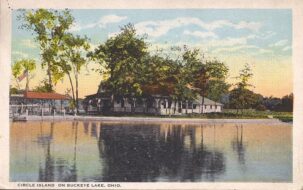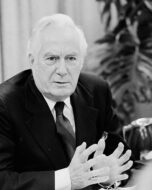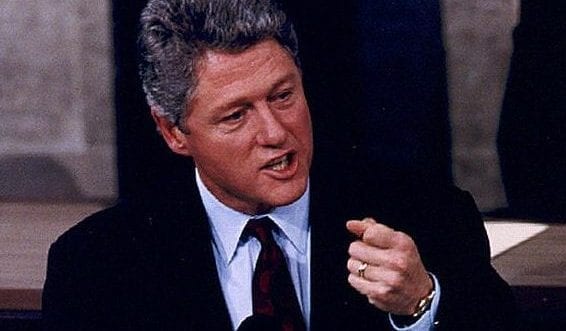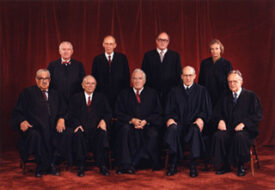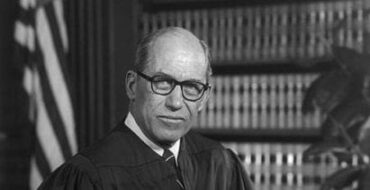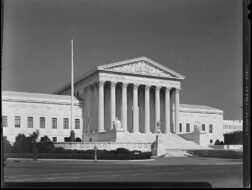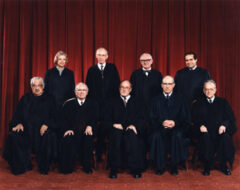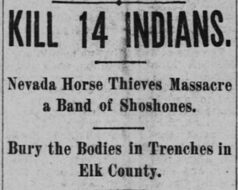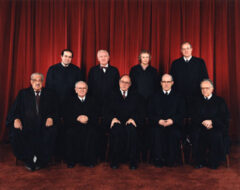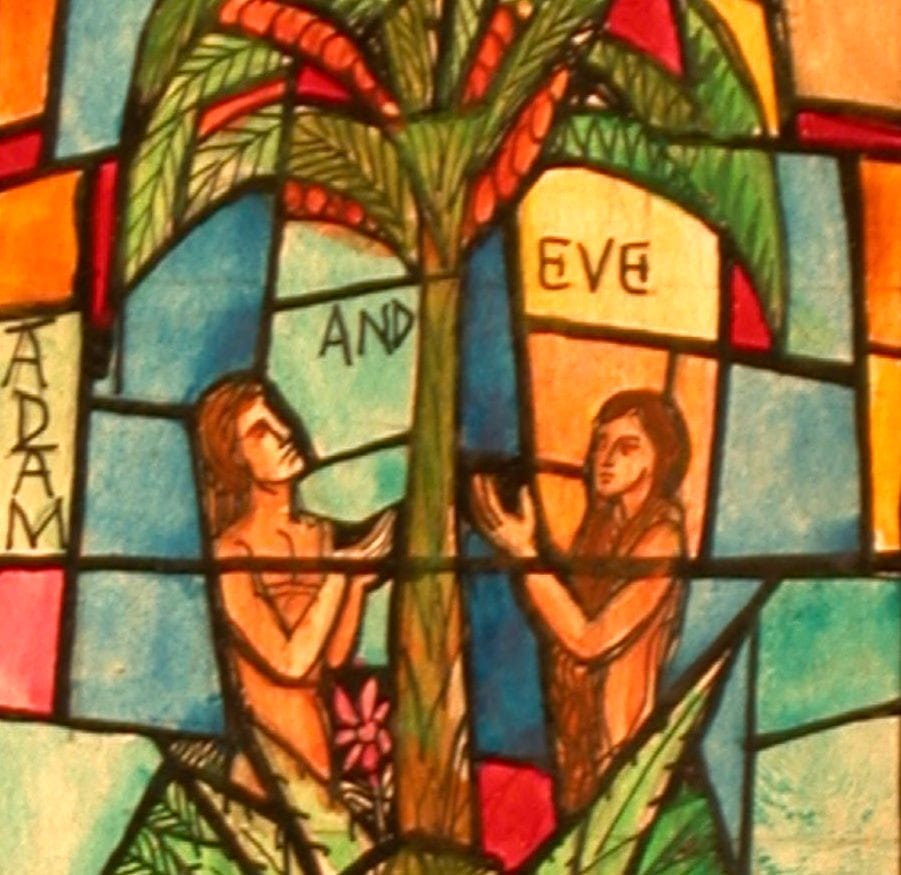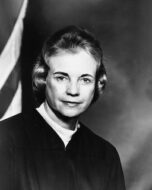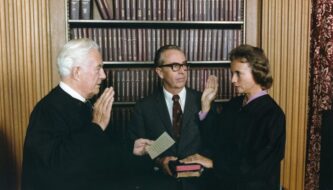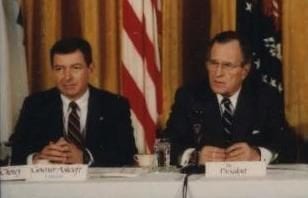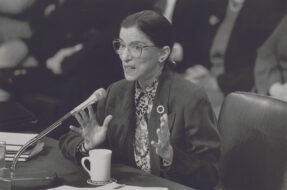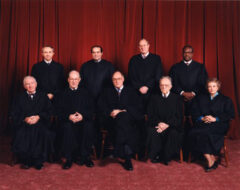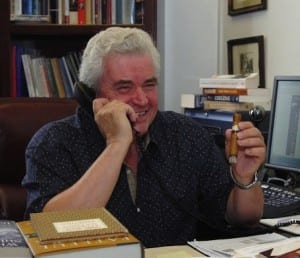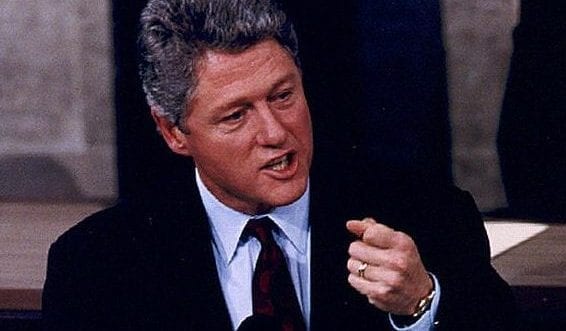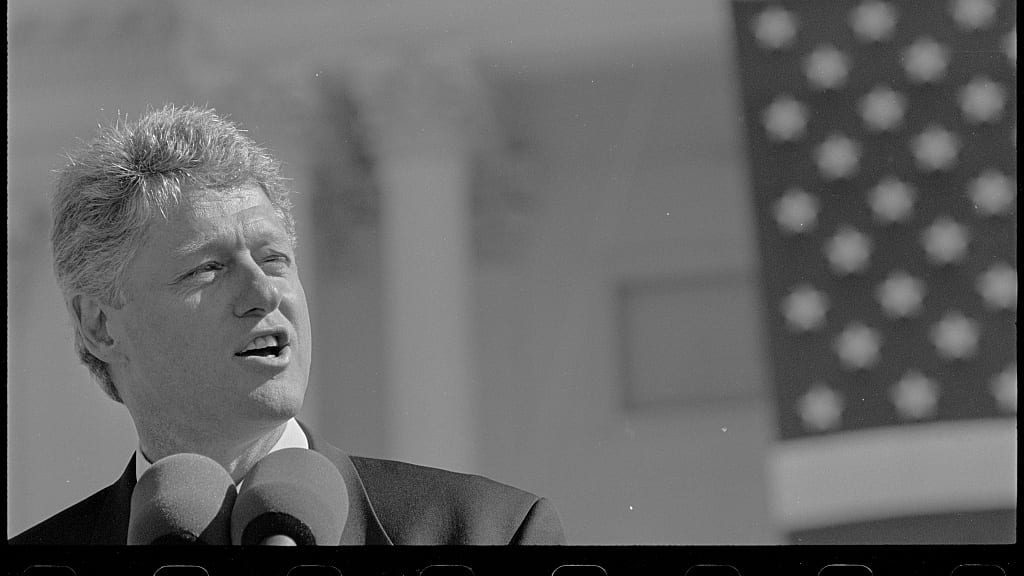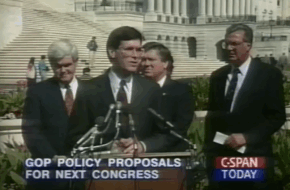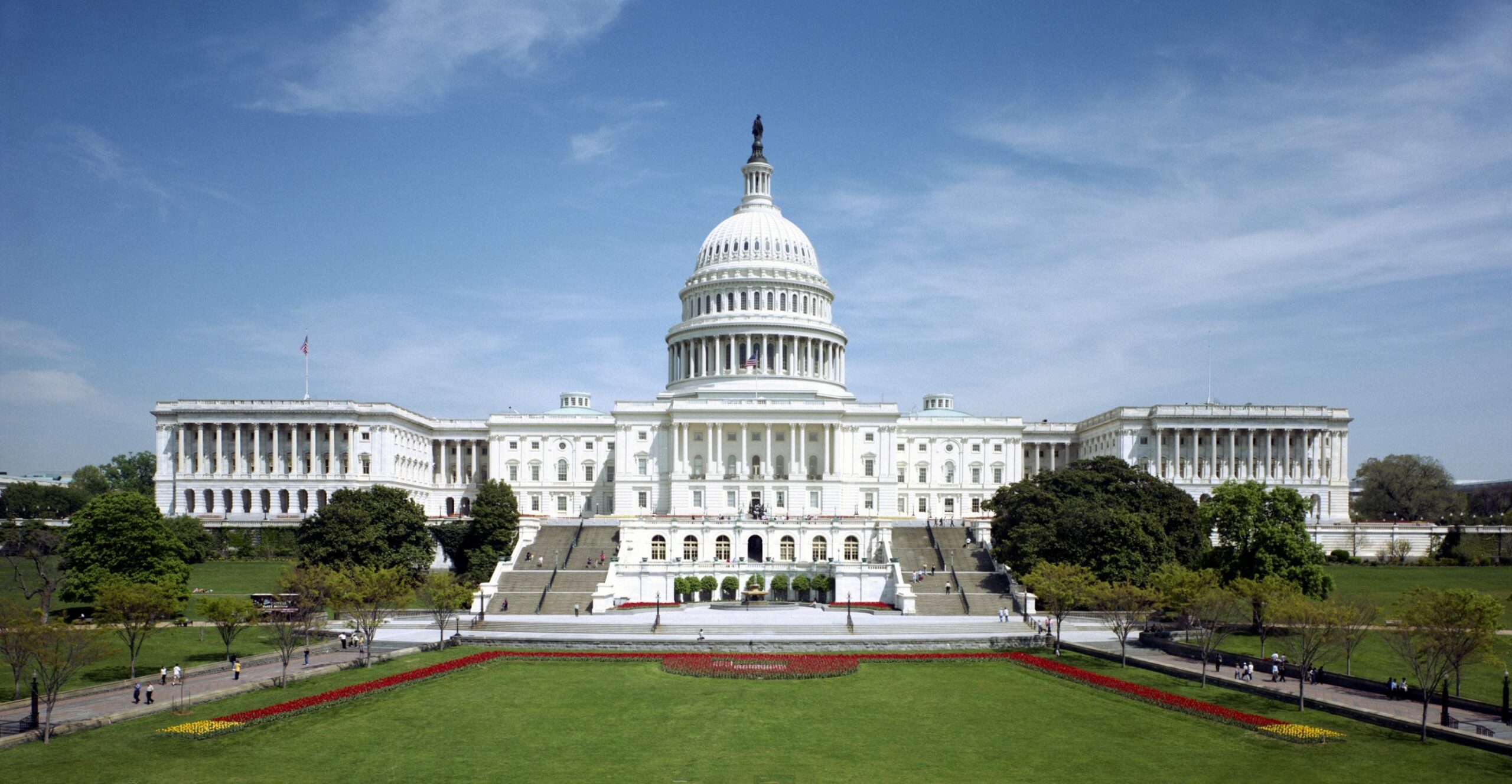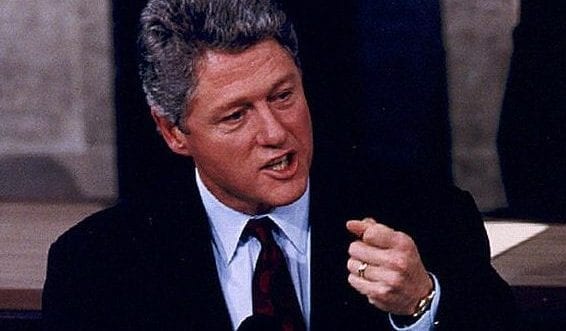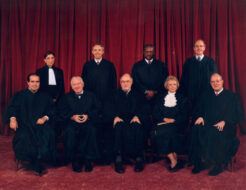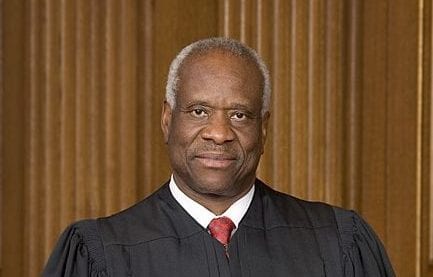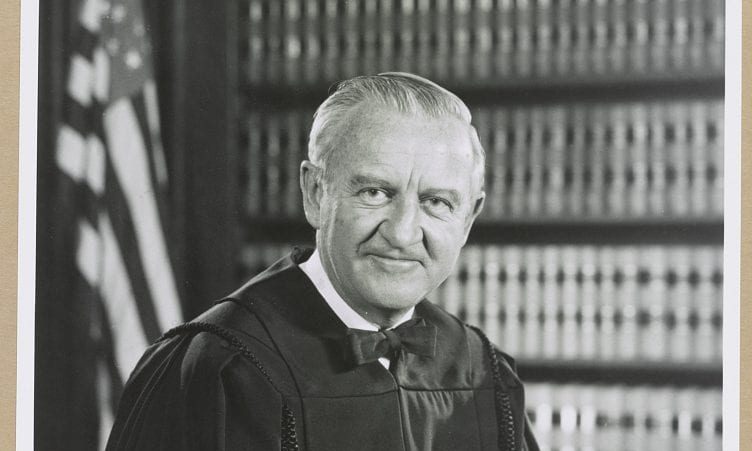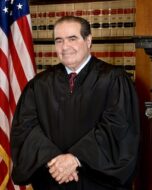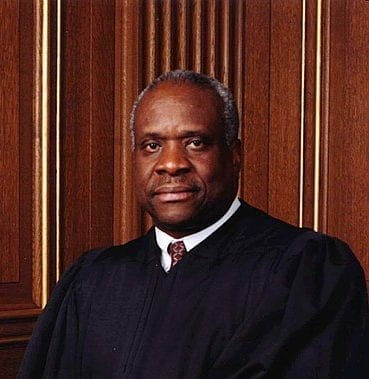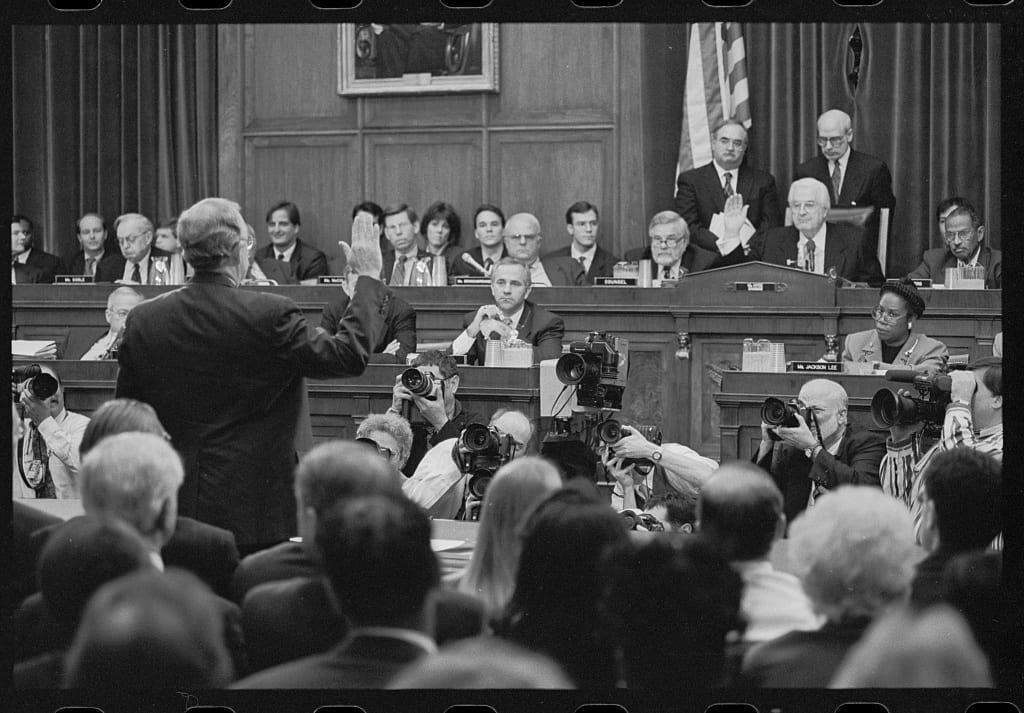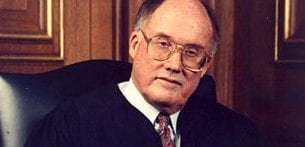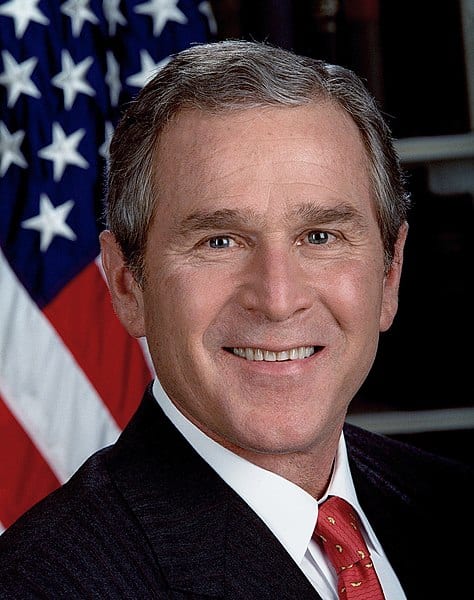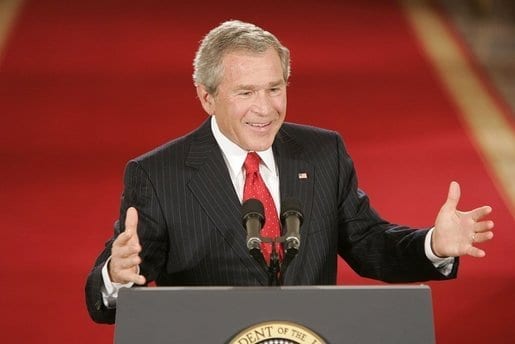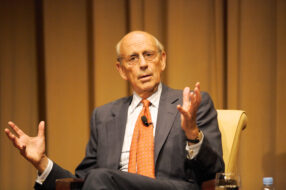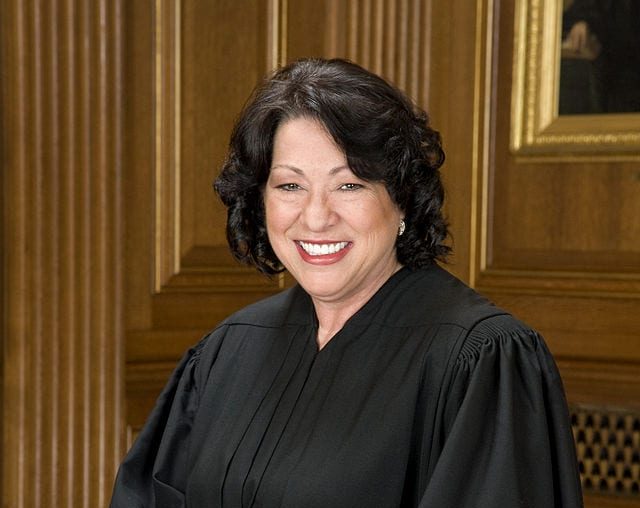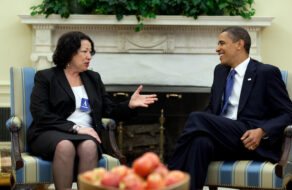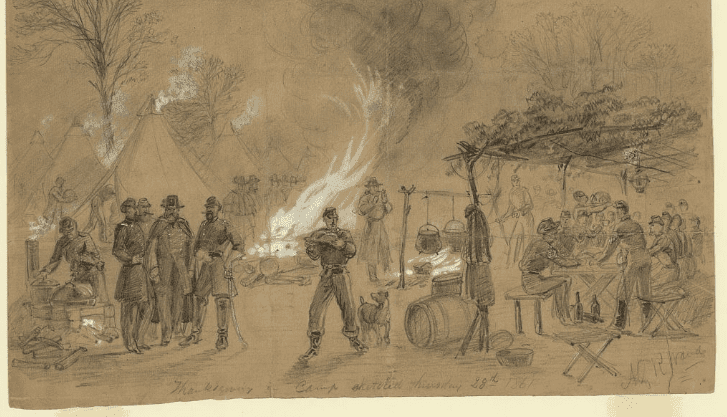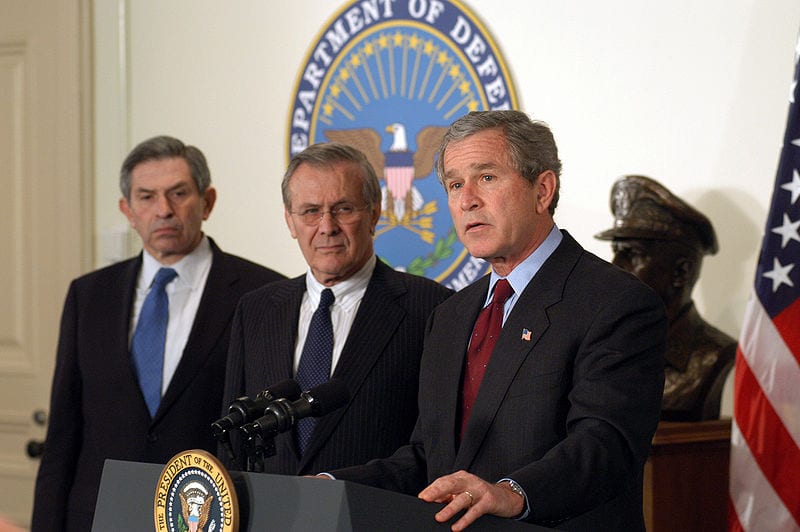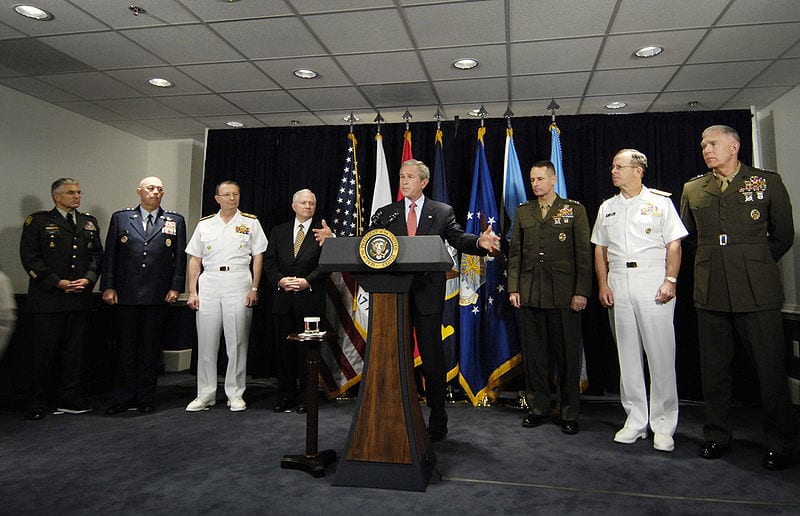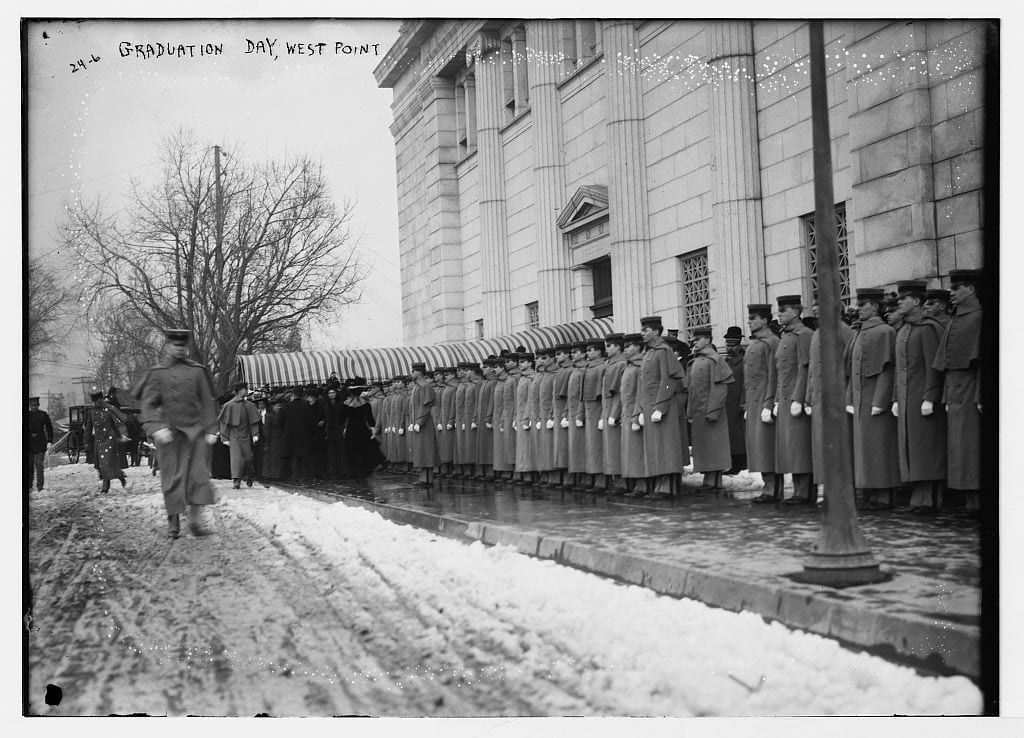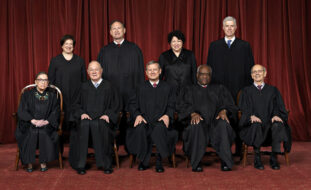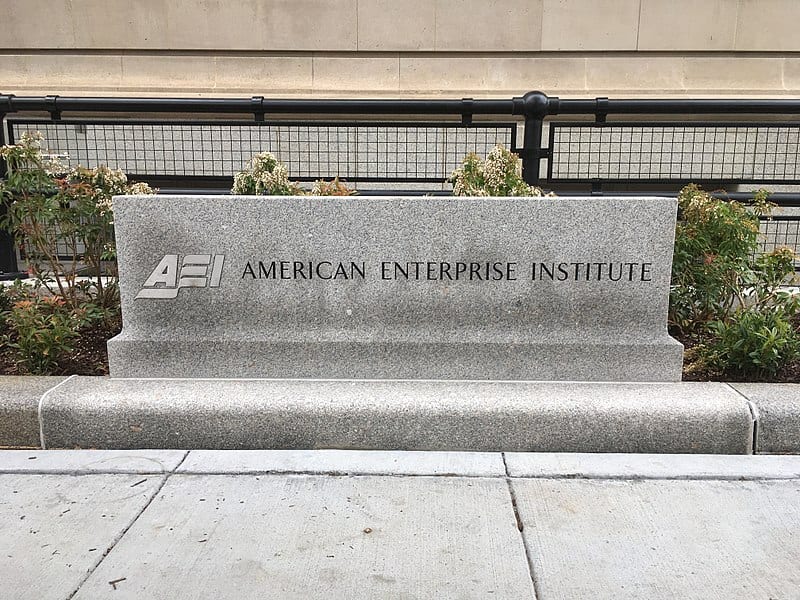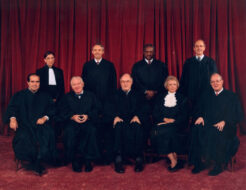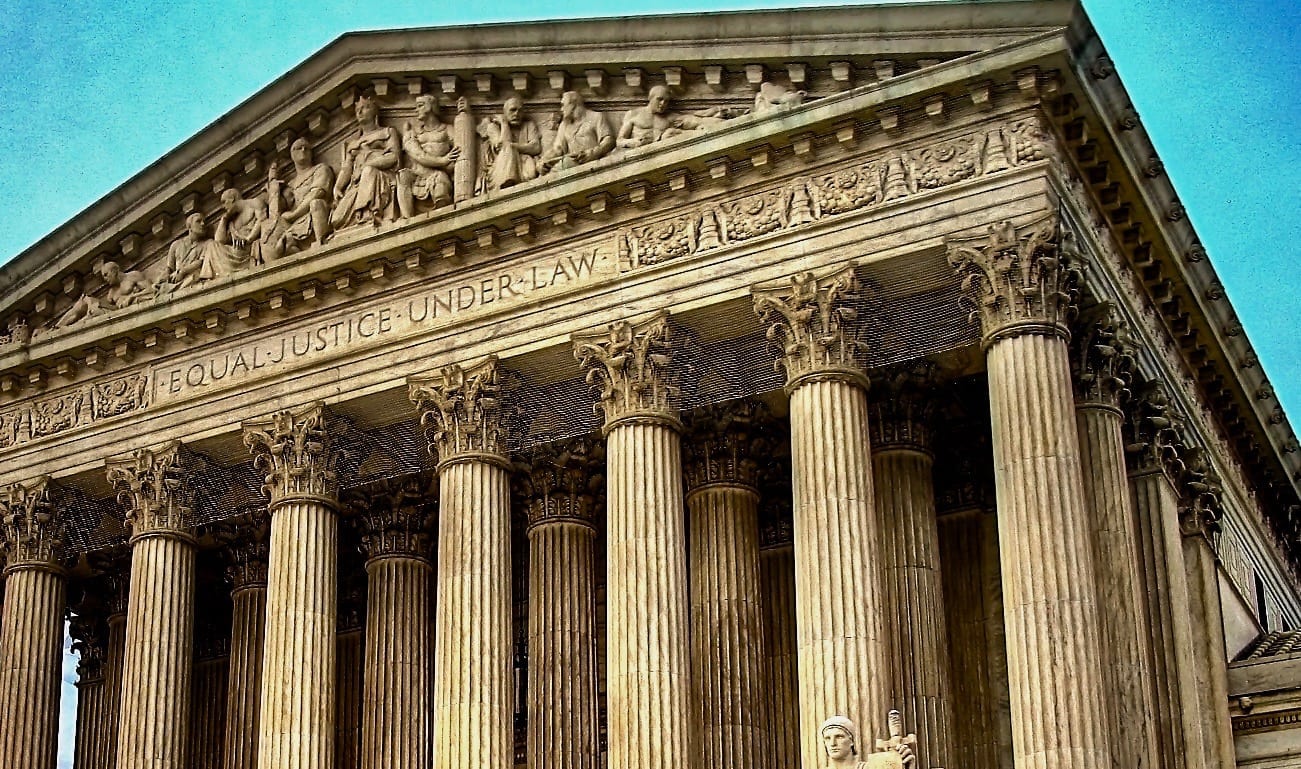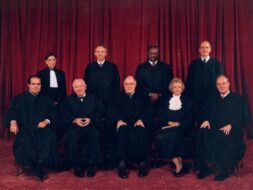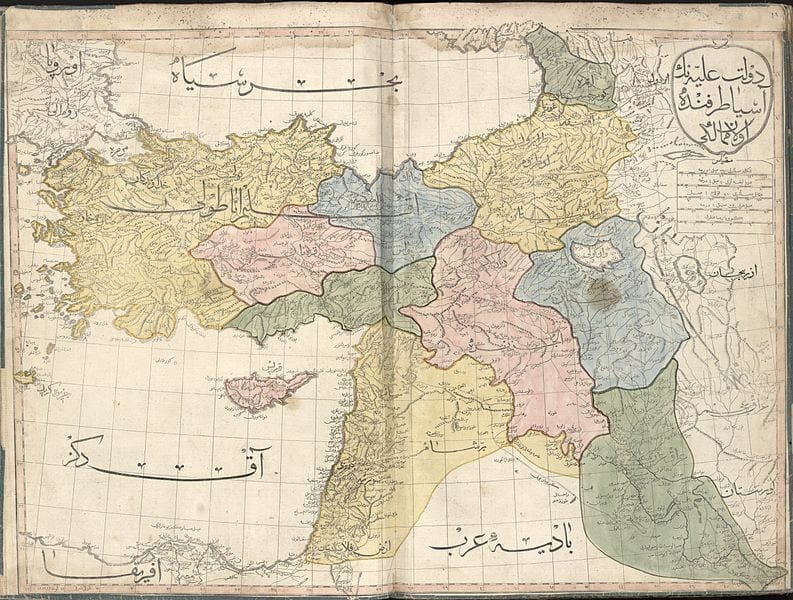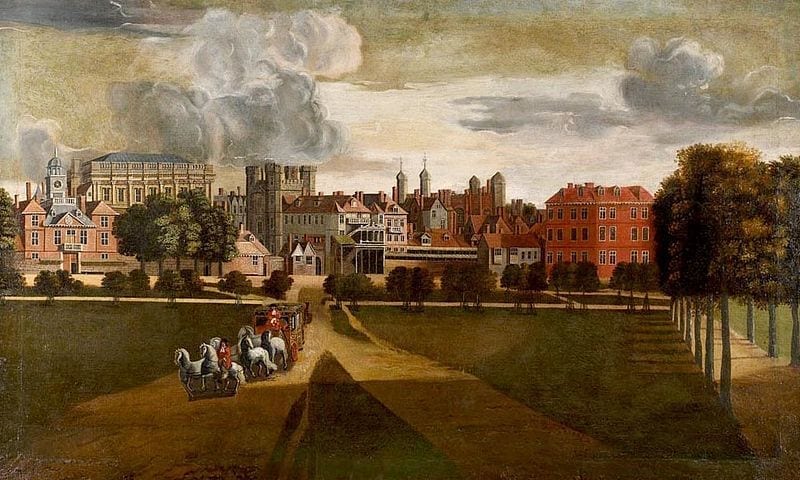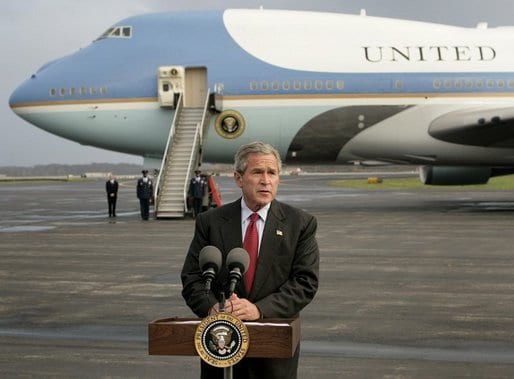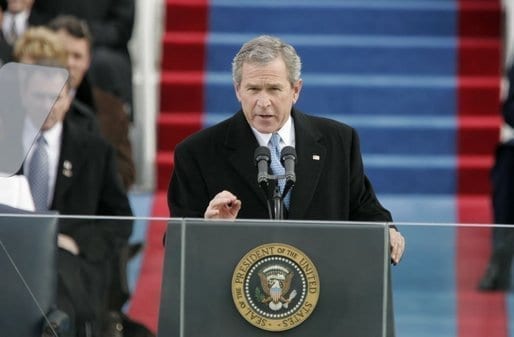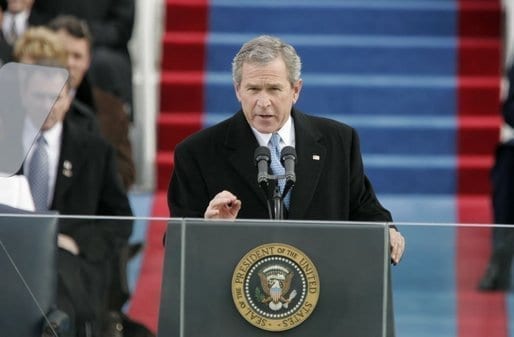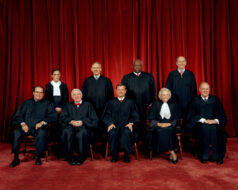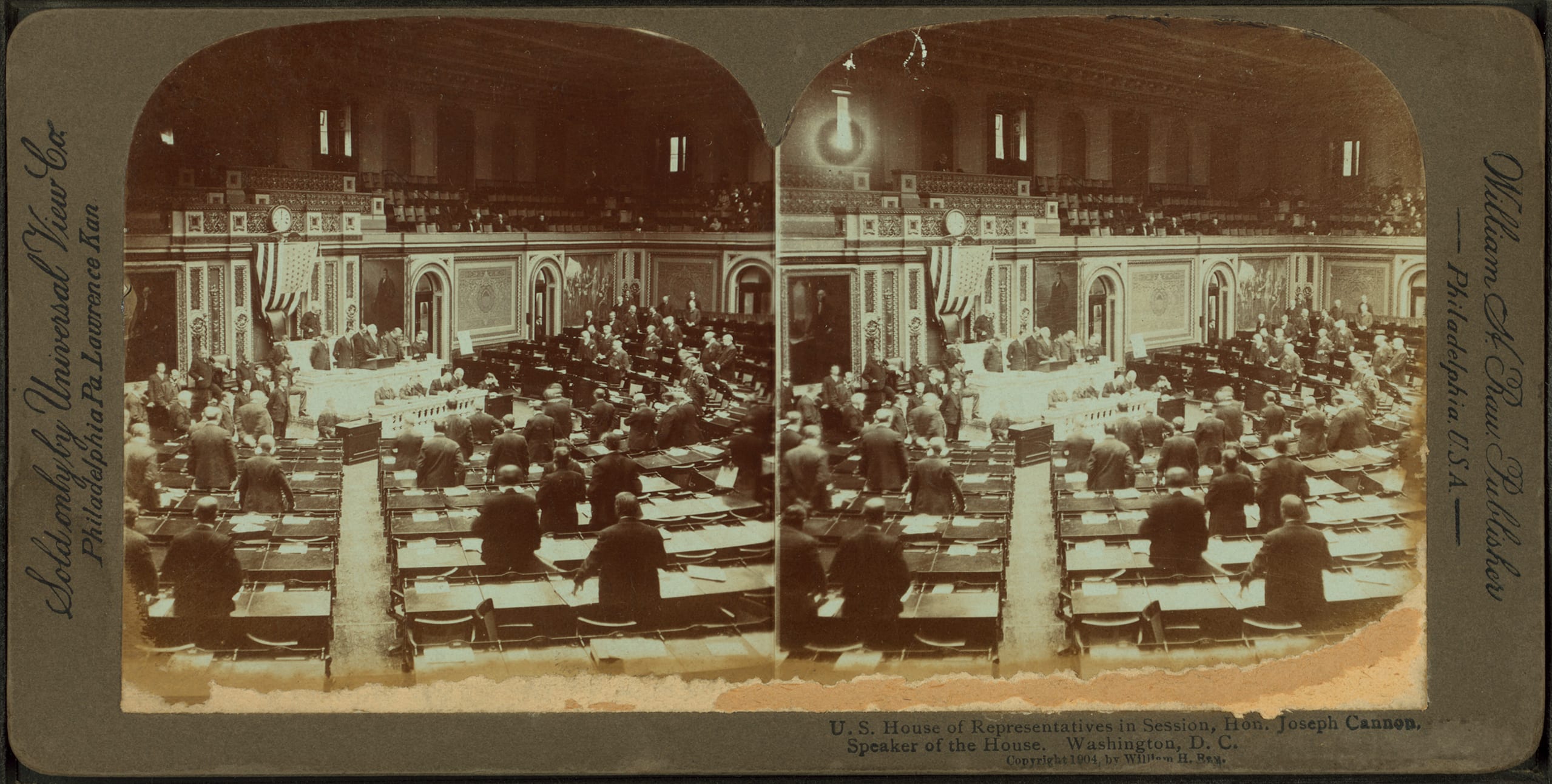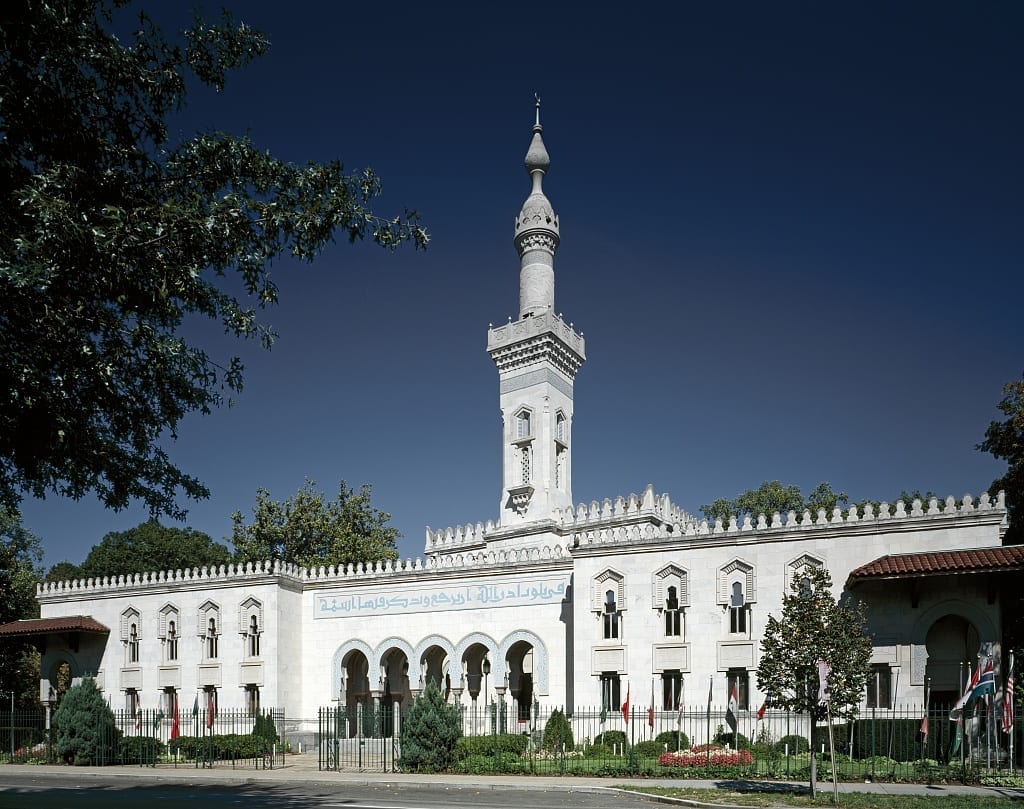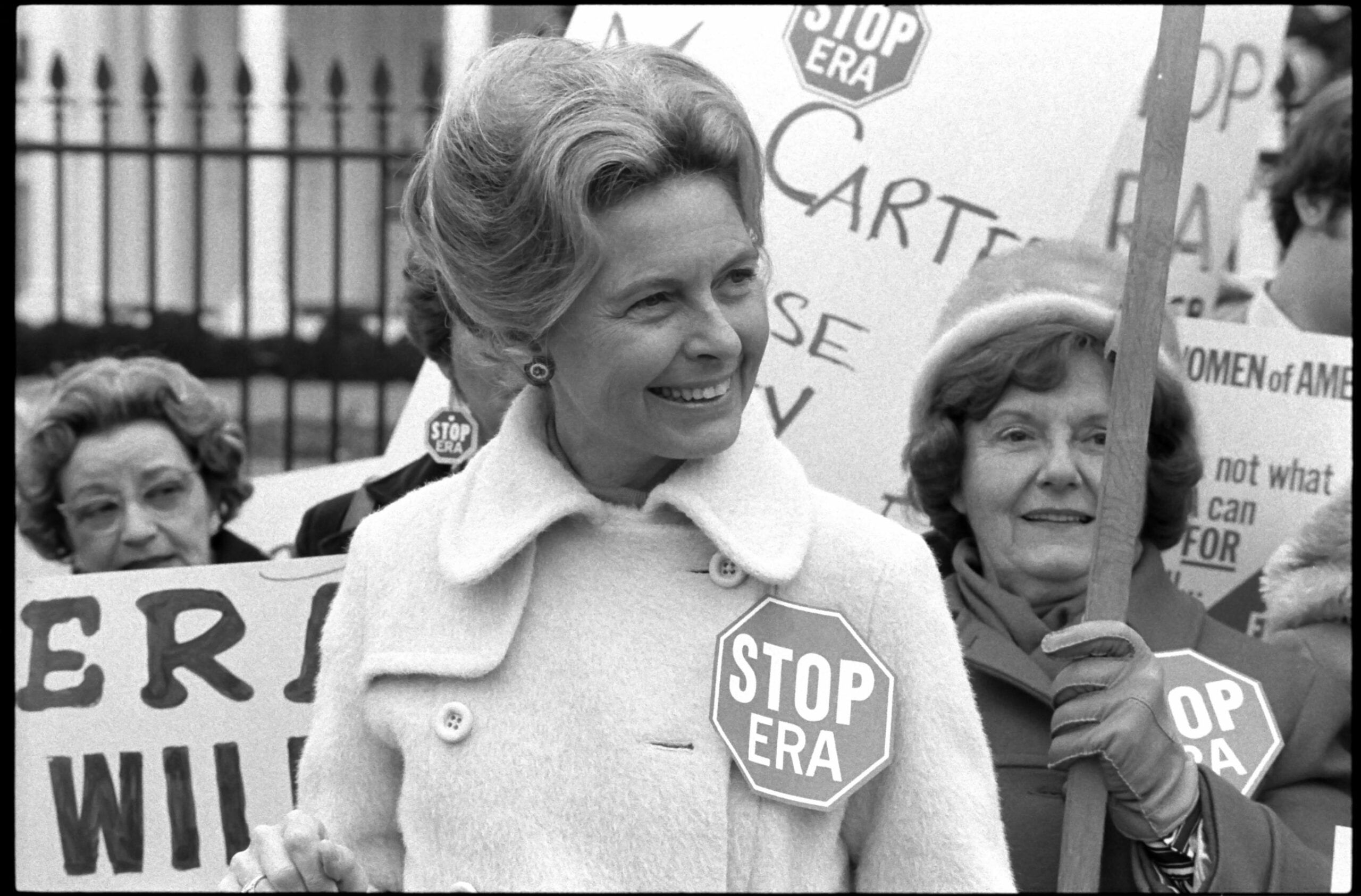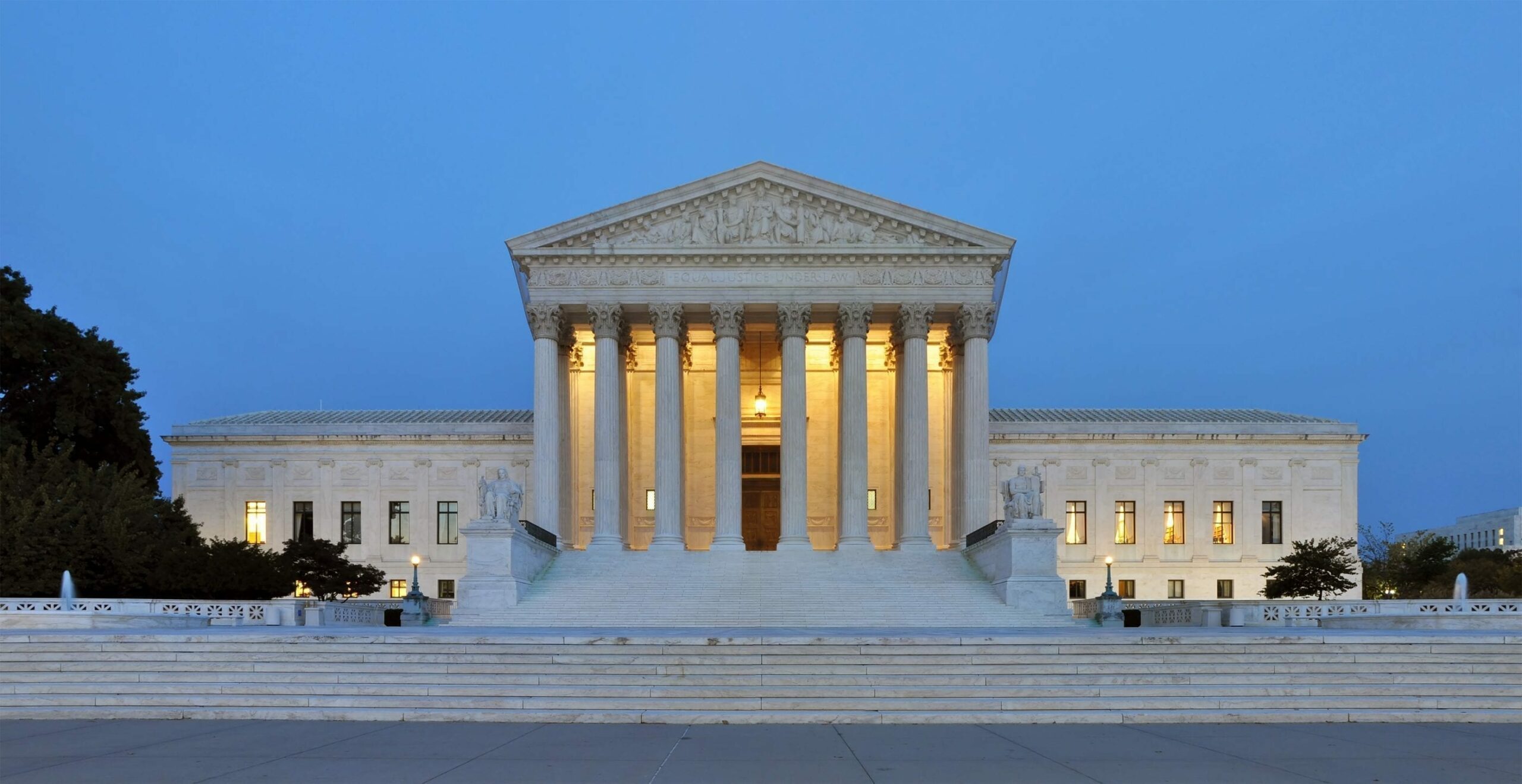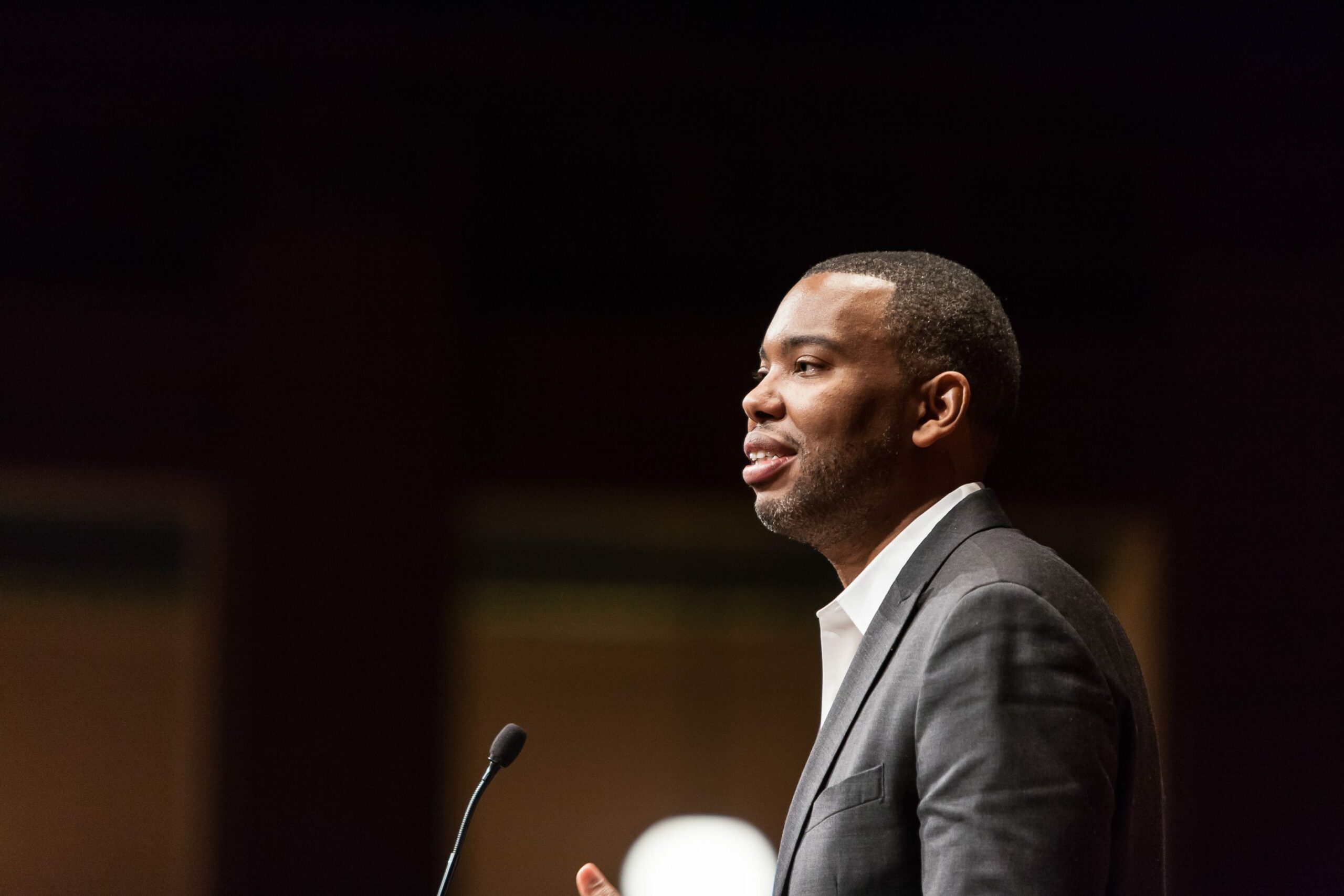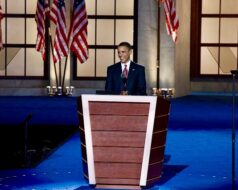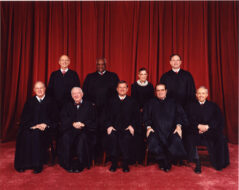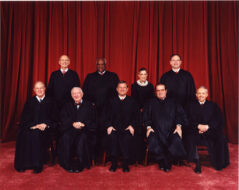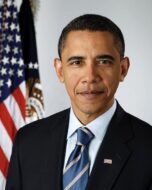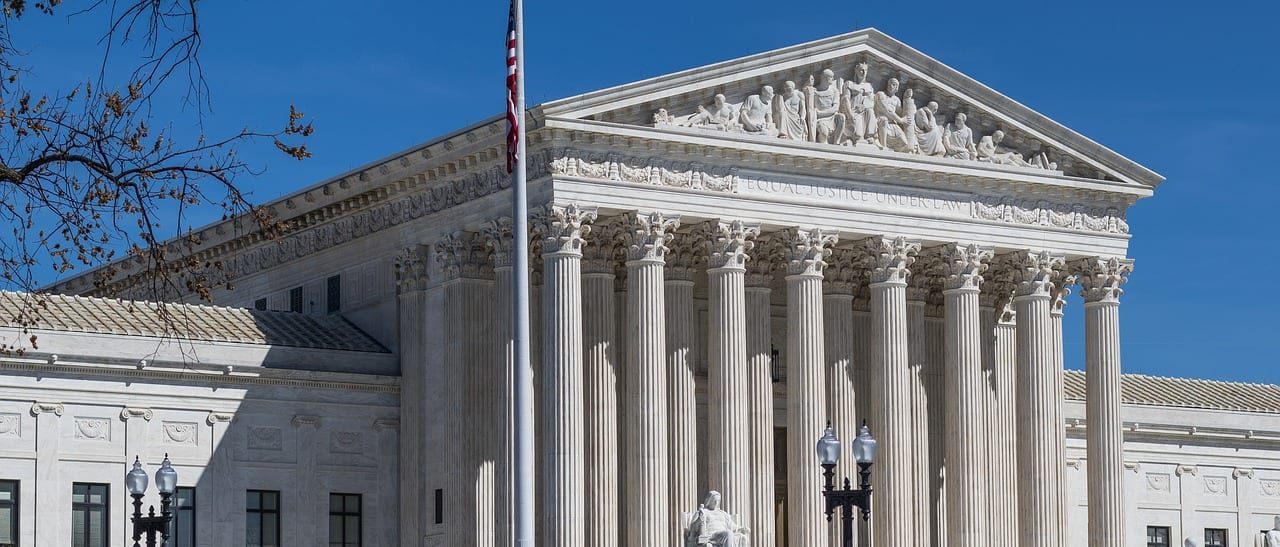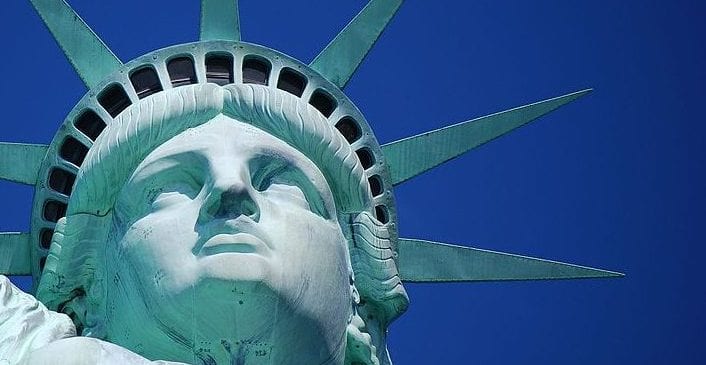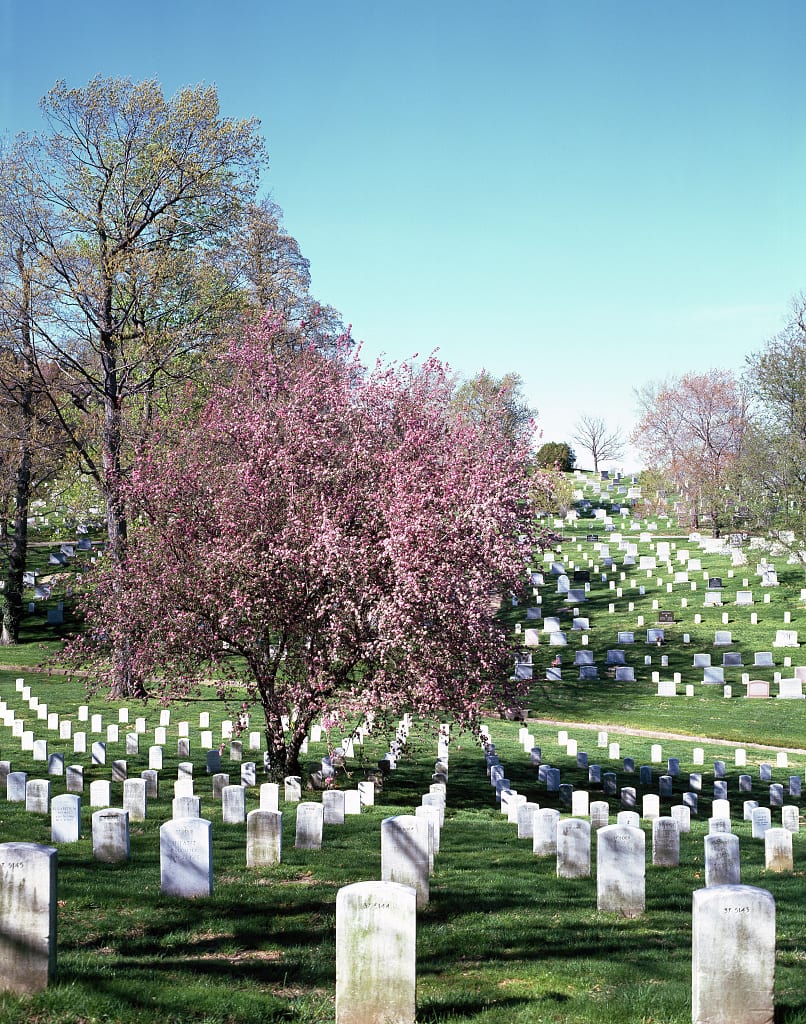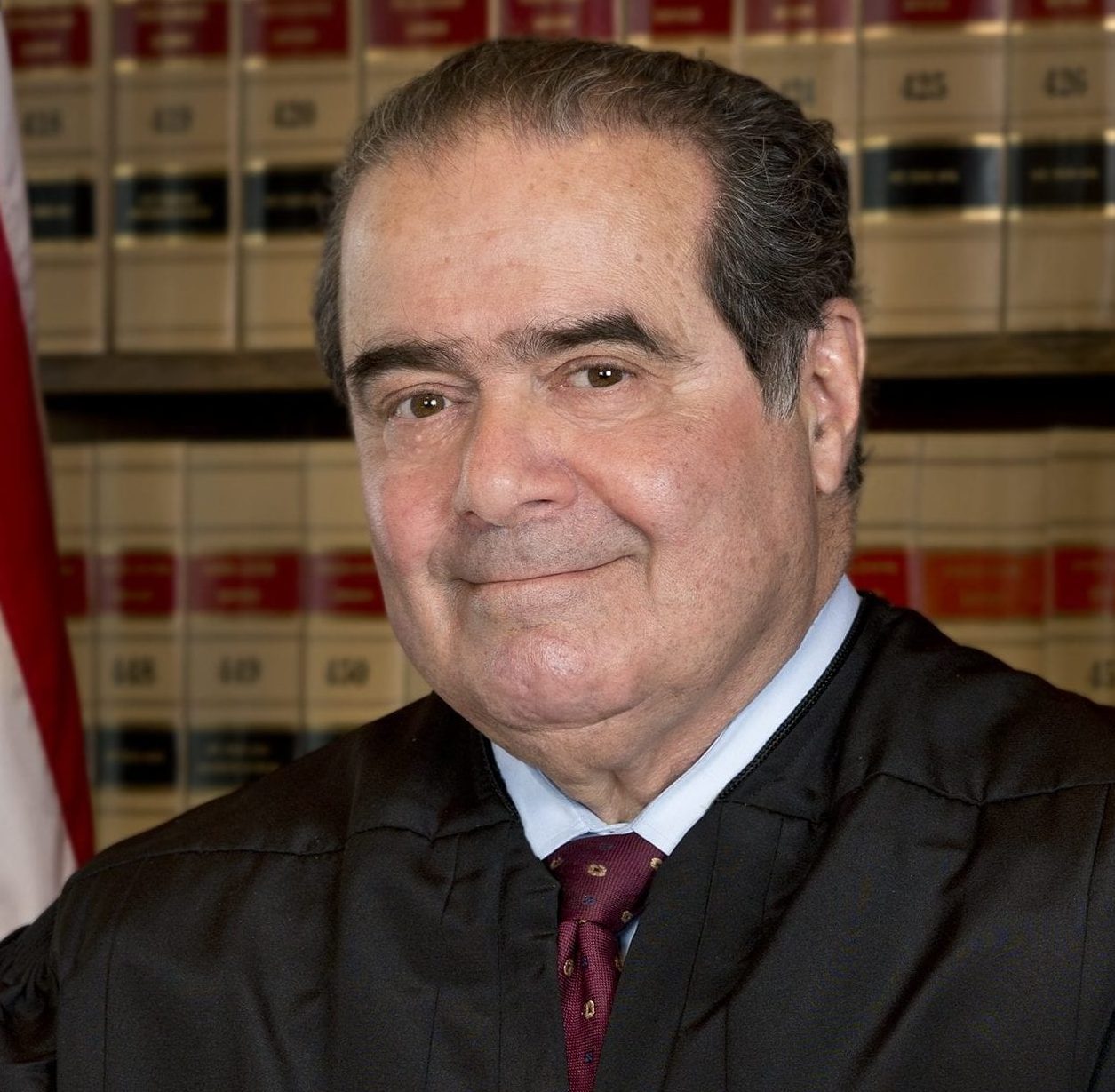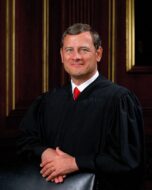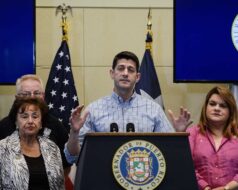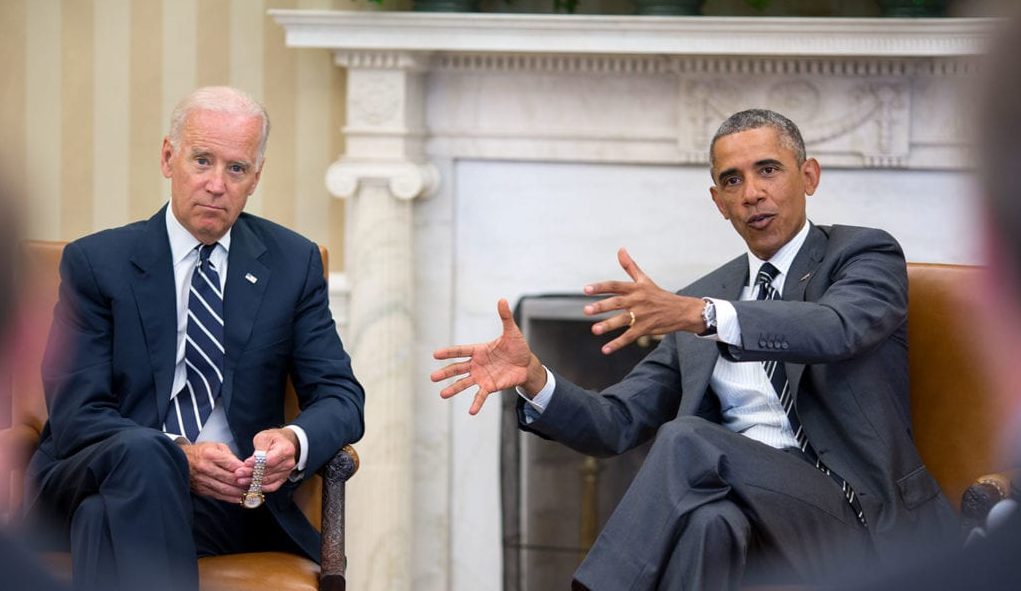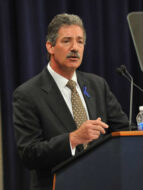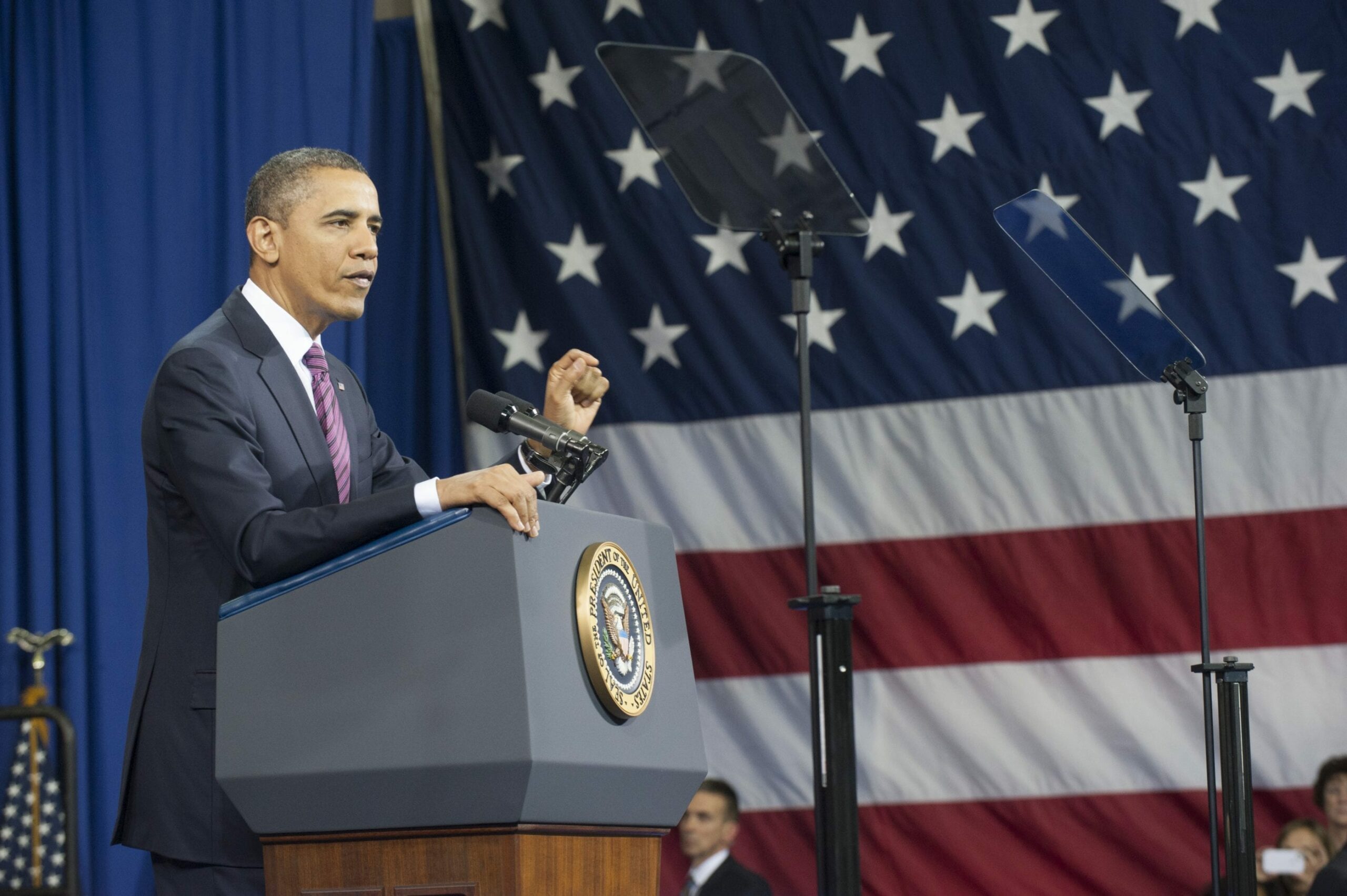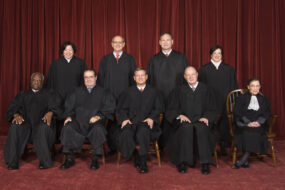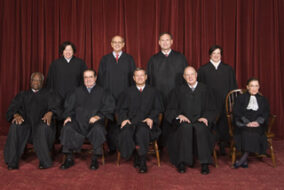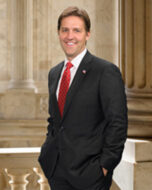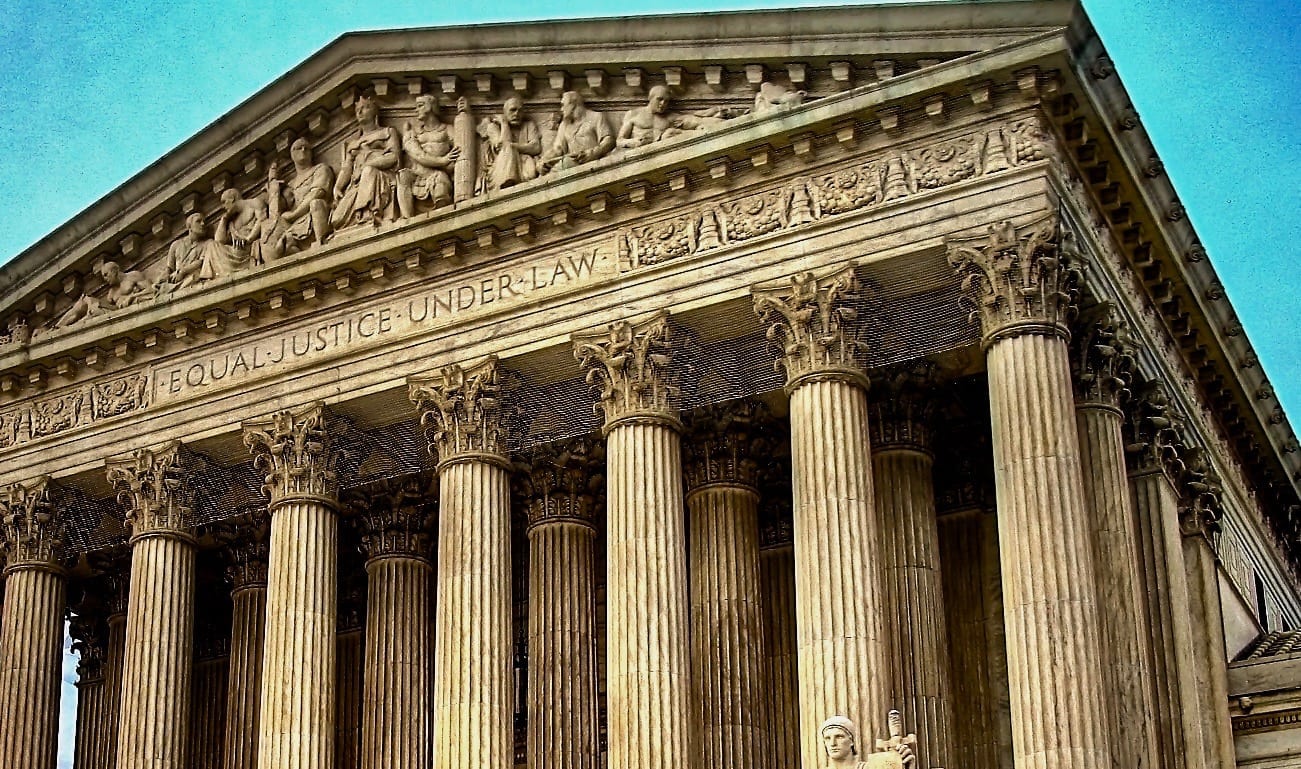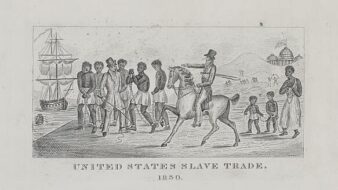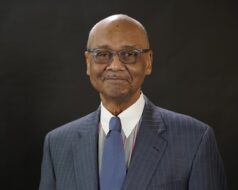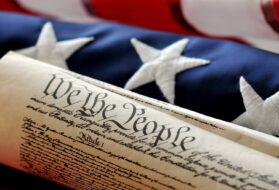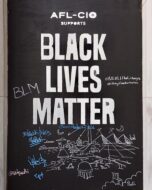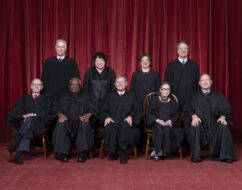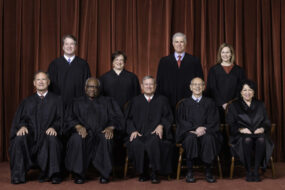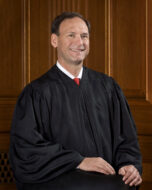

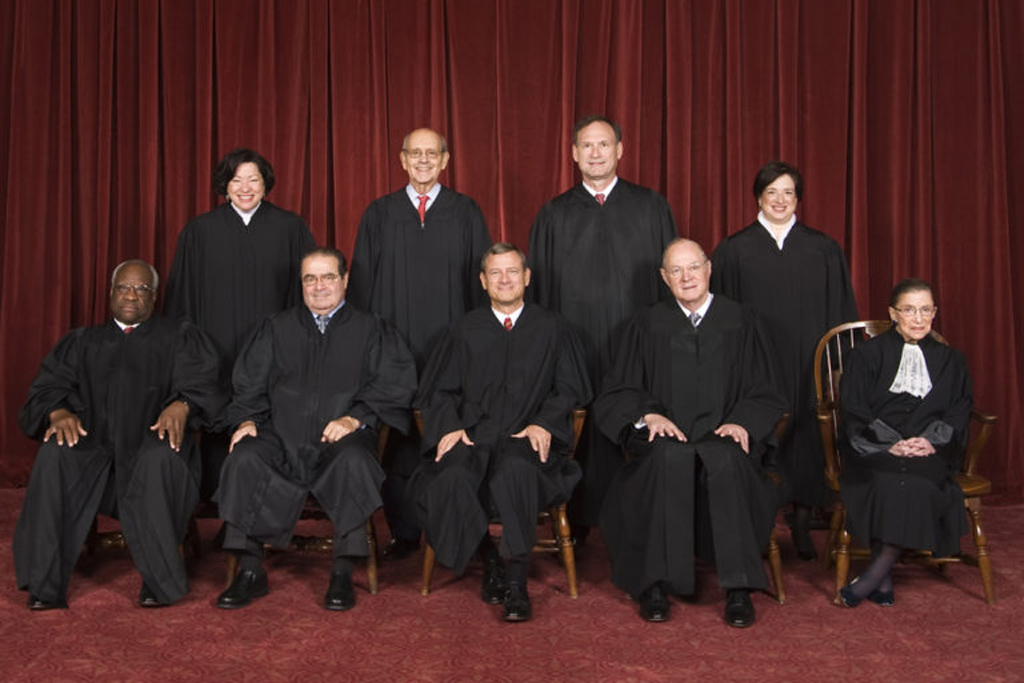
No related resources
Introduction
The Court decided 5-4 that denominational prayers opening a town council meeting did not violate the Establishment Clause. The majority applied as precedent Marsh v. Chambers (1989), which held that denominational prayers at the opening of a state legislature’s day are constitutional. Justice Elena Kagan’s dissent protested that the sectarian prayers violated the First Amendment’s Establishment Clause and risked intimidating those who did not share the clergies’ religion. Her discussion of a founding-era document, George Washington’s letter to the Touro Synagogue, exemplifies the enduring significance of the founding to current cases. Justice Samuel A. Alito’s concurring opinion challenged her rendition of the facts, arguing the allegedly discriminatory policies in choosing clergy had been altered and that the town’s practices were consistent with historical tradition. We omit Justice Anthony M. Kennedy’s Court opinion, Justice Clarence Thomas’s concurrence, and Justice Stephen G. Breyer’s dissent.
We have reversed the order of the dissent and concurrence, since Justice Alito’s concurrence is a response to Justice Kagan’s dissent. Justices exchange drafts of their opinions prior to submitting final versions and revise theirs accordingly.
Source: 681 F. 3d 20, reversed, https://www.law.cornell.edu/supremecourt/text/12-696. Footnotes added by the editors are preceded by “Ed. note.”
Justice Kagan, with whom Justice Ginsburg, Justice Breyer, and Justice Sotomayor join, dissenting.
. . . . I respectfully dissent from the Court’s opinion because I think the Town of Greece’s prayer practices violate that norm of religious equality—the breathtakingly generous constitutional idea that our public institutions belong no less to the Buddhist or Hindu than to the Methodist or Episcopalian. I do not contend that principle translates here into a bright separationist line. To the contrary, I agree with the Court’s decision in Marsh v. Chambers, upholding the Nebraska Legislature’s tradition of beginning each session with a chaplain’s prayer. And I believe that pluralism and inclusion in a town hall can satisfy the constitutional requirement of neutrality; such a forum need not become a religion-free zone. But still, the Town of Greece should lose this case. The practice at issue here differs from the one sustained in Marsh because Greece’s town meetings involve participation by ordinary citizens, and the invocations given—directly to those citizens—were predominantly sectarian in content. Still more, Greece’s Board did nothing to recognize religious diversity: In arranging for clergy members to open each meeting, the Town never sought (except briefly when this suit was filed) to involve, accommodate, or in any way reach out to adherents of non-Christian religions. So month in and month out for over a decade, prayers steeped in only one faith, addressed toward members of the public, commenced meetings to discuss local affairs and distribute government benefits. In my view, that practice does not square with the First Amendment’s promise that every citizen, irrespective of her religion, owns an equal share in her government.
I
To begin to see what has gone wrong in the Town of Greece, consider several hypothetical scenarios in which sectarian prayer—taken straight from this case’s record—infuses governmental activities. None involves, as this case does, a proceeding that could be characterized as a legislative session, but they are useful to elaborate some general principles. In each instance, assume (as was true in Greece) that the invocation is given pursuant to government policy and is representative of the prayers generally offered in the designated setting:
You are a party in a case going to trial; let’s say you have filed suit against the government for violating one of your legal rights. The judge bangs his gavel to call the court to order, asks a minister to come to the front of the room, and instructs the 10 or so individuals present to rise for an opening prayer. The clergyman faces those in attendance and says: “Lord, God of all creation, . . . . We acknowledge the saving sacrifice of Jesus Christ on the cross. . . .”[1] The judge then asks your lawyer to begin the trial. . . .
I would hold that the government officials responsible for the above practices—that is, for prayer repeatedly invoking a single religion’s beliefs in these settings—crossed a constitutional line. I have every confidence the Court would agree. And even Greece’s attorney conceded that something like the first hypothetical (he was not asked about the others) would violate the First Amendment. Why?
The reason, of course, has nothing to do with Christianity as such. This opinion is full of Christian prayers, because those were the only invocations offered in the Town of Greece. But if my hypotheticals involved the prayer of some other religion, the outcome would be exactly the same. . . .
One glaring problem is that the government in all these hypotheticals has aligned itself with, and placed its imprimatur on, a particular religious creed. . . .[2]
By authorizing and overseeing prayers associated with a single religion—to the exclusion of all others—the government officials in my hypothetical cases (whether federal, state, or local does not matter) have violated that foundational principle. They have embarked on a course of religious favoritism anathema to the First Amendment.
And making matters still worse: They have done so in a place where individuals come to interact with, and participate in, the institutions and processes of their government. . . . And so a civic function of some kind brings religious differences to the fore: That public proceeding becomes (whether intentionally or not) an instrument for dividing her from adherents to the community’s majority religion, and for altering the very nature of her relationship with her government.
That is not the country we are, because that is not what our Constitution permits. Here, when a citizen stands before her government, whether to perform a service or request a benefit, her religious beliefs do not enter into the picture. See Thomas Jefferson, Virginia Act for Establishing Religious Freedom (Oct. 31, 1785). (“[O]pinion[s] in matters of religion . . . shall in no wise diminish, enlarge, or affect [our] civil capacities”). The government she faces favors no particular religion, either by word or by deed. And that government, in its various processes and proceedings, imposes no religious tests on its citizens, sorts none of them by faith, and permits no exclusion based on belief. . . .
II
In both Greece’s and the majority’s view, everything I have discussed is irrelevant here because this case involves “the tradition of legislative prayer outlined” in Marsh v. Chambers. And before I dispute the town and Court, I want to give them their due: They are right that, under Marsh, legislative prayer has a distinctive constitutional warrant by virtue of tradition. . . . And so I agree with the majority that the issue here is “whether the prayer practice in the Town of Greece fits within the tradition long followed in Congress and the state legislatures.”
Where I depart from the majority is in my reply to that question. The town hall here is a kind of hybrid. Greece’s board indeed has legislative functions, as Congress and state assemblies do—and that means some opening prayers are allowed there. But much as in my hypotheticals, the board’s meetings are also occasions for ordinary citizens to engage with and petition their government, often on highly individualized matters. That feature calls for board members to exercise special care to ensure that the prayers offered are inclusive—that they respect each and every member of the community as an equal citizen. But the board, and the clergy members it selected, made no such effort. Instead, the prayers given in Greece, addressed directly to the town’s citizenry, were more sectarian, and less inclusive, than anything this Court sustained in Marsh. For those reasons, the prayer in Greece departs from the legislative tradition that the majority takes as its benchmark. . . .
. . .
C
Those three differences [differences in purpose, audience and character between the prayers considered in Marsh and the prayers in this case] taken together, remove this case from the protective ambit of Marsh and the history on which it relied. . . . And so, contra the majority, Greece’s prayers cannot simply ride on the constitutional coattails of the legislative tradition Marsh described. The board’s practice must, in its own particulars, meet constitutional requirements.
And the guideposts for addressing that inquiry include the principles of religious neutrality I discussed earlier. . . .
None of this means that Greece’s town hall must be religion- or prayer-free. “[W]e are a religious people,” Marsh observed, and prayer draws some warrant from tradition in a town hall, as well as in Congress or a state legislature. What the circumstances here demand is the recognition that we are a pluralistic people too. When citizens of all faiths come to speak to each other and their elected representatives in a legislative session, the government must take especial care to ensure that the prayers they hear will seek to include, rather than serve to divide. No more is required—but that much is crucial—to treat every citizen, of whatever religion, as an equal participant in her government.
And contrary to the majority’s (and Justice Alito’s) view, that is not difficult to do. If the town board had let its chaplains know that they should speak in nonsectarian terms, common to diverse religious groups, then no one would have valid grounds for complaint. Priests and ministers, rabbis and imams give such invocations all the time; there is no great mystery to the project. (And providing that guidance would hardly have caused the board to run afoul of the idea that “[t]he First Amendment is not a majority rule,” as the Court (headspinningly) suggests; what does that is the board’s refusal to reach out to members of minority religious groups.) Or if the board preferred, it might have invited clergy of many faiths to serve as chaplains, as the majority notes that Congress does. When one month a clergy member refers to Jesus, and the next to Allah or Jehovah—as the majority hopefully though counterfactually suggests happened here, the government does not identify itself with one religion or align itself with that faith’s citizens, and the effect of even sectarian prayer is transformed. So Greece had multiple ways of incorporating prayer into its town meetings—reflecting all the ways that prayer (as most of us know from daily life) can forge common bonds, rather than divide.
But Greece could not do what it did: infuse a participatory government body with one (and only one) faith, so that month in and month out, the citizens appearing before it become partly defined by their creed—as those who share, and those who do not, the community’s majority religious belief. In this country, when citizens go before the government, they go not as Christians or Muslims or Jews (or what have you), but just as Americans (or here, as Grecians). That is what it means to be an equal citizen, irrespective of religion. And that is what the town of Greece precluded by so identifying itself with a single faith.
III
How, then, does the majority go so far astray, allowing the town of Greece to turn its assemblies for citizens into a forum for Christian prayer? The answer does not lie in first principles: I have no doubt that every member of this Court believes as firmly as I that our institutions of government belong equally to all, regardless of faith. Rather, the error reflects two kinds of blindness. First, the majority misapprehends the facts of this case, as distinct from those characterizing traditional legislative prayer. And second, the majority misjudges the essential meaning of the religious worship in Greece’s town hall, along with its capacity to exclude and divide. . . .
IV
In 1790, George Washington traveled to Newport, Rhode Island, a longtime bastion of religious liberty and the home of the first community of American Jews. Among the citizens he met there was Moses Seixas, one of that congregation’s lay officials. The ensuing exchange between the two conveys, as well as anything I know, the promise this country makes to members of every religion.[3] . . .
Washington responded the very next day. Like any successful politician, he appreciated a great line when he saw one—and knew to borrow it too. And so he repeated, word for word, Seixas’s phrase about neither sanctioning bigotry nor assisting persecution. But he no less embraced the point Seixas had made about equality of citizenship. “It is now no more,” Washington said, “that toleration is spoken of, as if it was by the indulgence of one class of people” to another, lesser one. For “[a]ll possess alike . . . immunities of citizenship.” That is America’s promise in the First Amendment: full and equal membership in the polity for members of every religious group, assuming only that they, like anyone “who live[s] under [the government’s] protection[,] should demean themselves as good citizens.”
For me, that remarkable guarantee means at least this much: When the citizens of this country approach their government, they do so only as Americans, not as members of one faith or another. And that means that even in a partly legislative body, they should not confront government-sponsored worship that divides them along religious lines. I believe, for all the reasons I have given, that the Town of Greece betrayed that promise. I therefore respectfully dissent from the Court’s decision.
Justice Alito, with whom Justice Scalia joins, concurring.
I write separately to respond to the principal dissent, which really consists of two very different but intertwined opinions. One is quite narrow; the other is sweeping. I will address both.
I
First, however, since the principal dissent accuses the Court of being blind to the facts of this case. I recount facts that I find particularly salient.
The Town of Greece is a municipality in upstate New York that borders the city of Rochester. The town decided to emulate a practice long established in Congress and state legislatures by having a brief prayer before sessions of the town board. The task of lining up clergy members willing to provide such a prayer was given to the town’s office of constituent services. For the first four years of the practice, a clerical employee in the office would randomly call religious organizations listed in the Greece “Community Guide,” a local directory published by the Greece Chamber of Commerce, until she was able to find somebody willing to give the invocation. . . .
Apparently, all the houses of worship listed in the local Community Guide were Christian churches. That is unsurprising given the small number of non-Christians in the area. . . .
For some time, the town’s practice does not appear to have elicited any criticism, but when complaints were received, the town made it clear that it would permit any interested residents, including nonbelievers, to provide an invocation, and the town has never refused a request to offer an invocation. The most recent list in the record of persons available to provide an invocation includes representatives of many non-Christian faiths.
Meetings of the Greece Town Board appear to have been similar to most other town council meetings across the country. The prayer took place at the beginning of the meetings. The board then conducted what might be termed the “legislative” portion of its agenda, during which residents were permitted to address the board. After this portion of the meeting, a separate stage of the meetings was devoted to such matters as formal requests for variances.
No prayer occurred before this second part of the proceedings, and therefore I do not understand this case to involve the constitutionality of a prayer prior to what may be characterized as an adjudicatory proceeding. . . .
II
I turn now to the narrow aspect of the principal dissent, and what we find here is that the principal dissent’s objection, in the end, is really quite niggling. According to the principal dissent, the town could have avoided any constitutional problem in either of two ways.
A
First, the principal dissent writes, “[i]f the town board had let its chaplains know that they should speak in nonsectarian terms, common to diverse religious groups, then no one would have valid grounds for complaint.” “Priests and ministers, rabbis and imams,” the principal dissent continues, “give such invocations all the time” without any great difficulty.
Both Houses of Congress now advise guest chaplains that they should keep in mind that they are addressing members from a variety of faith traditions, and as a matter of policy, this advice has much to recommend it. But any argument that nonsectarian prayer is constitutionally required runs headlong into a long history of contrary congressional practice. . . .
Not only is there no historical support for the proposition that only generic prayer is allowed, but as our country has become more diverse, composing a prayer that is acceptable to all members of the community who hold religious beliefs has become harder and harder. It was one thing to compose a prayer that is acceptable to both Christians and Jews; it is much harder to compose a prayer that is also acceptable to followers of Eastern religions that are now well represented in this country. . . .
. . . Must a town screen and, if necessary, edit prayers before they are given? . . .
B
If a town wants to avoid the problems associated with this first option, the principal dissent argues, it has another choice: It may “invit[e] clergy of many faiths.”. . .
If, as the principal dissent appears to concede, such a rotating system would obviate any constitutional problems, then despite all its high rhetoric, the principal dissent’s quarrel with the Town of Greece really boils down to this: The town’s clerical employees did a bad job in compiling the list of potential guest chaplains. For that is really the only difference between what the town did and what the principal dissent is willing to accept. The Greece clerical employee drew up her list using the town directory instead of a directory covering the entire greater Rochester area. . . . But the mistake was at worst careless, and it was not done with a discriminatory intent. (I would view this case very differently if the omission of . . . synagogues [in nearby Rochester] were intentional.)
The informal, imprecise way in which the town lined up guest chaplains is typical of the way in which many things are done in small and medium-sized units of local government. In such places, the members of the governing body almost always have day jobs that occupy much of their time. The town almost never has a legal office and instead relies for legal advice on a local attorney whose practice is likely to center on such things as land-use regulation, contracts, and torts. When a municipality like the town of Greece seeks in good faith to emulate the congressional practice on which our holding in Marsh v. Chambers, 463 U. S. 783 (1983), was largely based, that municipality should not be held to have violated the Constitution simply because its method of recruiting guest chaplains lacks the demographic exactitude that might be regarded as optimal.
The effect of requiring such exactitude would be to pressure towns to forswear altogether the practice of having a prayer before meetings of the town council. Many local officials, puzzled by our often puzzling Establishment Clause jurisprudence and terrified of the legal fees that may result from a lawsuit claiming a constitutional violation, already think that the safest course is to ensure that local government is a religion-free zone. . . . But if, as precedent and historic practice make clear (and the principal dissent concedes), prayer before a legislative session is not inherently inconsistent with the First Amendment, then a unit of local government should not be held to have violated the First Amendment simply because its procedure for lining up guest chaplains does not comply in all respects with what might be termed a “best practices” standard.
III
. . .
In short, I see nothing out of the ordinary about any of the features that the principal dissent notes. Therefore, if prayer is not allowed at meetings with those characteristics, local government legislative bodies, unlike their national and state counterparts, cannot begin their meetings with a prayer. I see no sound basis for drawing such a distinction.
IV
The principal dissent claims to accept the Court’s decision in Marsh v. Chambers, which upheld the constitutionality of the Nebraska Legislature’s practice of prayer at the beginning of legislative sessions, but the principal dissent’s acceptance of Marsh appears to be predicated on the view that the prayer at issue in that case was little more than a formality to which the legislators paid scant attention. . . .
. . . [W]hat is important is not so much what happened in Nebraska in the years prior to Marsh, but what happened before congressional sessions during the period leading up to the adoption of the First Amendment. By that time, prayer before legislative sessions already had an impressive pedigree, and it is important to recall that history and the events that led to the adoption of the practice.
The principal dissent paints a picture of “morning in Nebraska” circa 1983, but it is more instructive to consider “morning in Philadelphia,” September 1774. . . .
. . . [There follows, up to Part V of the opinion, a 700-word account of ceremonial prayer at the time of the founding.] Th[e] first congressional prayer was emphatically Christian, and it was neither an empty formality nor strictly nondenominational. But one of its purposes, and presumably one of its effects, was not to divide, but to unite. . . .
V
This brings me to my final point. I am troubled by the message that some readers may take from the principal dissent’s rhetoric and its highly imaginative hypotheticals. For example, the principal dissent conjures up the image of a litigant awaiting trial who is asked by the presiding judge to rise for a Christian prayer, of an official at a polling place who conveys the expectation that citizens wishing to vote make the sign of the cross before casting their ballots, and of an immigrant seeking naturalization who is asked to bow her head and recite a Christian prayer. Although I do not suggest that the implication is intentional, I am concerned that at least some readers will take these hypotheticals as a warning that this is where today’s decision leads—to a country in which religious minorities are denied the equal benefits of citizenship.
Nothing could be further from the truth. All that the Court does today is to allow a town to follow a practice that we have previously held is permissible for Congress and state legislatures. In seeming to suggest otherwise, the principal dissent goes far astray.
- 1. Ed. note: Justice Kagan quotes one of the prayers that opened the town board meeting.
- 2. That principle meant as much to the founders as it does today. The demand for neutrality among religions is not a product of 21st century “political correctness,” but of the 18th century view—rendered no less wise by time—that, in George Washington’s words, “[r]eligious controversies are always productive of more acrimony and irreconcilable hatreds than those which spring from any other cause”….
- 3. Ed. note: Address from Newport Hebrew Congregation (Aug. 17, 1790), http://teachingamericanhistory.org/library/document/letter-to-the-hebrew-congregation-at-newport/.

Conversation-based seminars for collegial PD, one-day and multi-day seminars, graduate credit seminars (MA degree), online and in-person.
